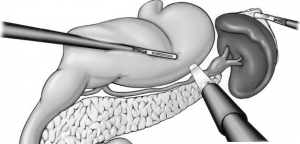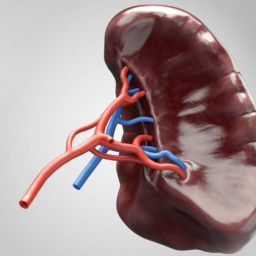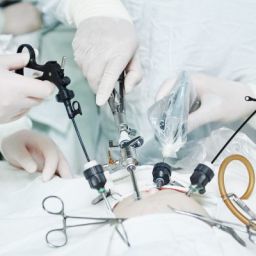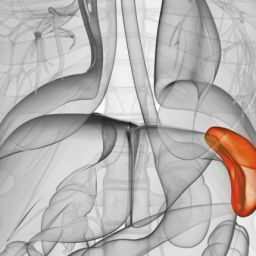
1. Physiological Differences Between Children and Adults After Splenectomy
The physical differences between children and adults significantly affect the way the body adapts to the loss of the spleen. These differences include the immune response, organ functionality, and overall recovery process.
a. Immune System Adaptation

The spleen is a critical organ in the immune system, involved in filtering blood, removing old blood cells, and fighting infections. In adults, the body has already developed a robust immune response through years of exposure to pathogens, so the immune system is relatively efficient at compensating for the loss of the spleen. Other organs, such as the liver and bone marrow, take over some of the spleen’s functions, but the immune response is not as efficient as when the spleen is present.
In contrast, children’s immune systems are still developing. The spleen plays an even more crucial role in children because their immune systems are not yet fully matured. After a splenectomy, children may experience a more significant compromise in their immune defenses, especially during the early years following the procedure. While the bone marrow and other organs can take on some of the spleen’s functions, these organs are not as effective in compensating for the loss of such a key immune organ. This makes children more vulnerable to infections post-splenectomy, particularly those caused by encapsulated bacteria like Streptococcus pneumoniae and Haemophilus influenzae.
b. Blood Cell Management
The spleen is responsible for filtering out old or damaged red blood cells and platelets. In adults, after splenectomy, the liver and bone marrow are capable of compensating for some of the blood management functions of the spleen. However, these organs do not perform the function as effectively, leading to an increased risk of blood disorders such as thrombocytosis (elevated platelet count) or anemia in some adults.
In children, the spleen’s absence can lead to more noticeable blood-related issues. The body’s ability to efficiently manage blood cells, especially platelets, can be delayed as children’s organs are still in a phase of growth and adaptation. This can lead to an increased risk of blood clotting disorders or an excessive buildup of platelets. Additionally, as children’s bone marrow is still maturing, it might not be able to compensate for the spleen’s role in blood filtration as efficiently as an adult’s mature bone marrow.
c. Organ Compensation
While the liver, bone marrow, and other organs may partially compensate for the spleen’s absence, the level of compensation differs in children and adults. Adults generally have a more developed compensatory mechanism, allowing their bodies to handle the loss of the spleen with relatively few complications. However, in children, the compensatory organs are still growing, and this incomplete compensation can lead to greater long-term health challenges, particularly concerning the immune system and blood regulation.
2. Risk of Infections and Postoperative Care
One of the primary concerns after splenectomy is the increased susceptibility to infections, especially those caused by encapsulated bacteria. Both children and adults are at a higher risk for infections after the surgery, but the risk is generally higher in children due to their developing immune systems and the additional challenges they face during recovery.

a. Risk of Pneumonia, Meningitis, and Sepsis
Post-splenectomy patients, whether children or adults, face an increased risk of infections, particularly bacterial infections. The spleen plays an important role in filtering out pathogens from the blood, and without it, the body is less effective at defending itself against certain types of bacteria. However, the risk is particularly high in children, who may not yet have acquired the immunity needed to fight off infections. Children are more likely to develop severe infections like pneumonia, meningitis, or sepsis, which can be life-threatening without immediate medical intervention.
For adults, while the risk is still present, they have generally acquired more immunity over time and may be able to mount a more effective response to infections. However, certain adults, particularly the elderly or those with weakened immune systems, may also face heightened risks of infection post-splenectomy. Therefore, both children and adults must take preventive measures to reduce the risk of infection, such as receiving vaccinations and using prophylactic antibiotics as prescribed by healthcare providers.
b. Vaccination Requirements
After splenectomy, both children and adults need to receive certain vaccinations to reduce the risk of severe infections. For children, vaccination is critical to ensure protection against pathogens such as Streptococcus pneumoniae, Haemophilus influenzae, and Neisseria meningitidis. These vaccines must be administered before the surgery, and in some cases, booster doses may be required to maintain immunity. In addition, children may need extra care during the postoperative period, as their immune systems may take longer to adapt to the loss of the spleen.
In adults, vaccination is also important but may be less urgent if the person is older or has already developed immunity against certain bacteria. Adult patients who are at higher risk—such as those with underlying medical conditions like diabetes or compromised immune systems—should follow the same vaccination schedule as children to protect against potential infections.
c. Postoperative Monitoring and Antibiotic Prophylaxis
After splenectomy, both children and adults require close monitoring for signs of infection, particularly during the first few months after surgery. While the risk is heightened in children, both age groups may need antibiotic prophylaxis to prevent infections. Antibiotics may be prescribed for those who are at a high risk of developing infections, and early recognition of infection symptoms is vital for effective treatment.
For children, parents and caregivers must be vigilant and seek medical attention immediately if there are signs of infection such as fever, chills, or difficulty breathing. Adults, particularly those with underlying health conditions, must also be cautious about signs of infection and work with their healthcare providers to ensure a comprehensive post-surgery care plan.
3. Recovery and Long-Term Health Considerations
While splenectomy is generally a safe procedure, the recovery process can differ significantly between children and adults due to factors such as growth, adaptation, and pre-existing medical conditions.
a. Recovery Time and Hospital Stay
In general, children tend to recover more quickly than adults after splenectomy. Their bodies are more adaptable, and they have greater potential for healing and regaining normal function. However, the recovery period can still be challenging, and children may require extended hospital stays if complications arise.
Adults, on the other hand, may experience a slower recovery due to age-related factors. Older adults or those with pre-existing health conditions might face complications such as infection, delayed healing, or blood clotting disorders. Therefore, the recovery process for adults may require more extended care and closer monitoring, especially for individuals with compromised immune systems.
b. Long-Term Health Risks and Follow-Up Care
Both children and adults face long-term health risks after splenectomy, but these risks are particularly pronounced for children due to their ongoing growth and development. Children who have had their spleens removed need regular follow-up care to ensure that they are adapting well and to monitor for potential health issues such as blood disorders, infections, or delayed growth.
For adults, the long-term health risks may include a higher chance of developing infections or blood-related issues like anemia or thrombocytosis. Regular check-ups are essential for monitoring the function of other organs that compensate for the spleen’s loss, including the liver and bone marrow. Lifestyle adjustments, such as proper nutrition and regular vaccinations, are essential for minimizing these risks.
c. Psychological and Emotional Considerations
While the physical recovery from splenectomy can be challenging for both children and adults, psychological and emotional support is also crucial. Children, in particular, may have difficulty understanding the procedure and its implications for their health. They may experience feelings of anxiety, fear, or frustration as they adapt to the changes in their bodies. Providing emotional support, open communication, and reassurance is vital for children during the recovery process.
Adults may also experience emotional distress, particularly if they were already facing health challenges prior to the splenectomy. Anxiety about long-term health, potential complications, or the need for lifestyle adjustments can affect their mental well-being. Counseling or support groups may be beneficial for both children and adults to navigate the emotional aspects of recovery.
While splenectomy is necessary for many individuals, the way the body adapts to the absence of the spleen differs considerably between children and adults. Children face unique challenges due to their developing immune systems, growth, and organ function. They are more susceptible to infections and may require closer monitoring during recovery. Adults, on the other hand, have a more mature immune system, but they are still at risk for complications, particularly if they have underlying health conditions.
Both children and adults require vigilant post-surgical care, including vaccinations, antibiotic prophylaxis, and regular monitoring to minimize the risks associated with splenectomy. With the right care and attention, most individuals can recover well and lead healthy lives after the procedure, though lifelong precautions are necessary to manage the risks associated with the loss of the spleen.





